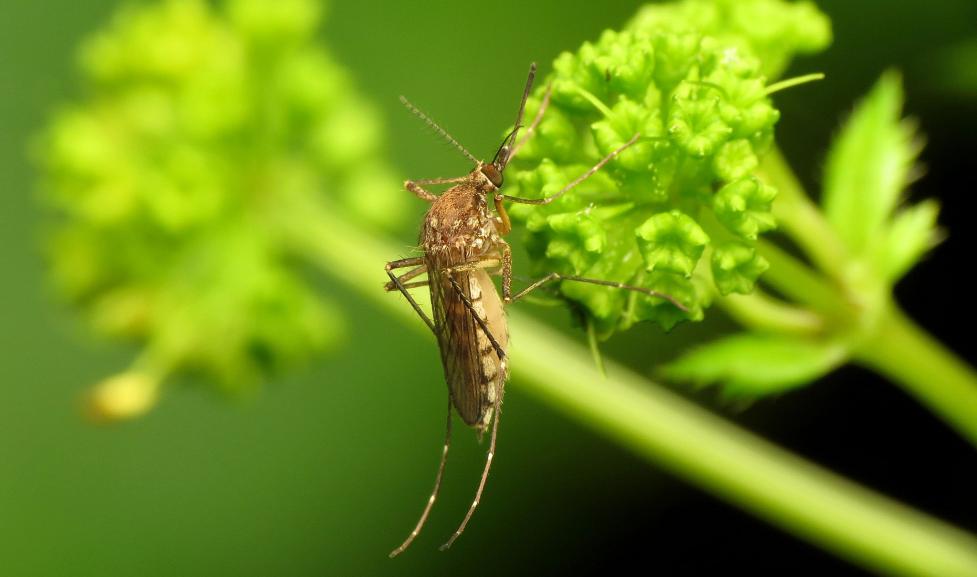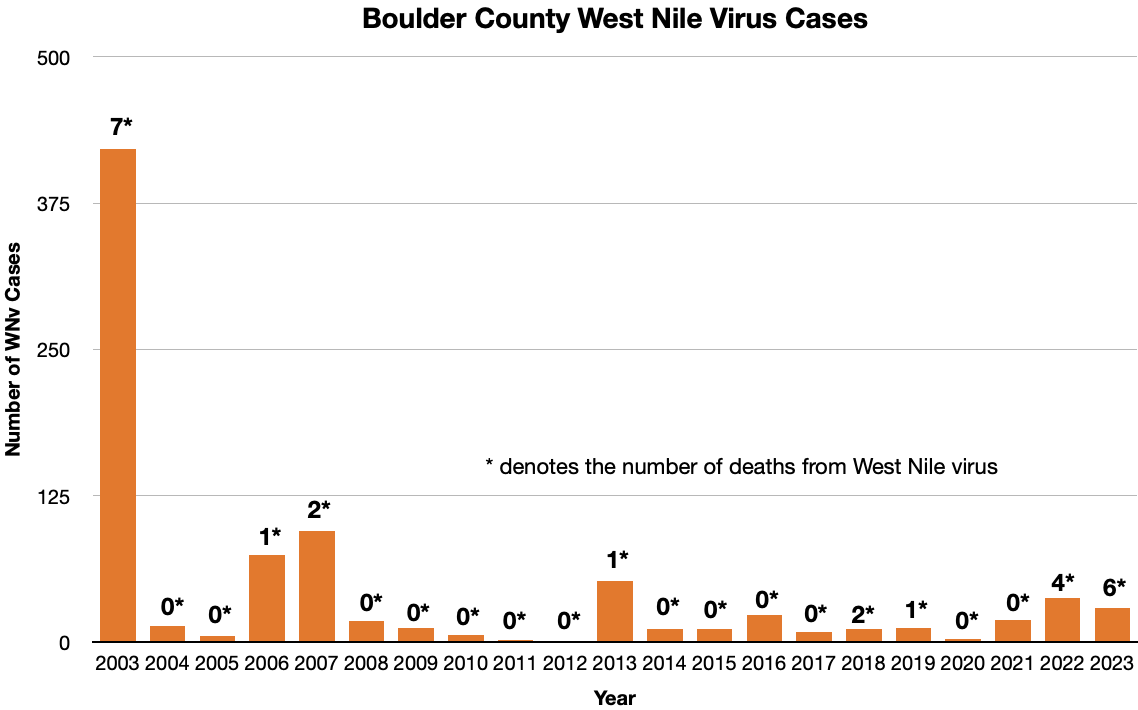Although living with mosquitoes is a fact of life during the summer, community-wide efforts from both the city and residents can help to reduce mosquito numbers, and more importantly, decrease the risk for mosquito-borne illnesses like West Nile virus.
The city's innovative mosquito management program uses a combination of traditional mosquito management tools, as well as ecosystems protection and biodiversity surveys to manage mosquitoes. The city samples and tests mosquitoes for West Nile virus to estimate risk fo the public. Residents play an important role by reducing mosquito breeding habitat on private property and regularly employing measures to avoid mosquito bites.
An Ecological Approach
Of the 57 known species of mosquitoes in Colorado, about a dozen are routinely caught in city mosquito traps. Each of these species has different behaviors, hosts, and breeding site preferences. Mosquitoes inhabit complex ecosystems. Mosquito larvae compete with other species of mosquitoes and non-biting aquatic flies for resources. Both the larval and adult forms are important food sources for an array of aquatic and terrestrial insects and other animals. When wetland ecosystems are in balance, mosquito numbers stay relatively low. The city studies the characteristics of wetlands that maintain lower mosquito presence, and studies the impact that biodiversity can play in reducing the risk of mosquito-borne disease transmission to people. The city monitors both adult and larval mosquito populations. When mosquito larvae are not kept under control by natural predators, a larvicide is applied that targets to kill the mosquito larvae. Follow this link to a story map that provides more details about the city's mosquito program.
West Nile Virus
West Nile virus is endemic in Colorado, meaning that it's a permanent part of local ecosystems. Although the risk for transmission varies, whenever mosquitoes are active, you should assume that West Nile virus is present and take precautions to protect yourself. Always inspect your property and drain standing water to prevent mosquito breeding near your home and within the community. The West Nile Virus Fact Sheet provides more information to keep you and your family safe.
When West Nile virus (WNv) arrived in the Front Range in 2003, human cases reached epidemic levels in Colorado. Cases declined sharply in 2004, and remained relatively low compared to previous years. However, this pattern seems to be changing over the the past last few years, particularly the 2023 season. The city is exploring the reasons why this is happening and how we can continue improving program to decrease this risk.
Estimating Risk to People - The Vector Index
What is the vector index and what does it mean? The vector index estimates risk to people of contracting WNv by calculating the abundance of Culex mosquitoes - the type of mosquito that can become infected with WNv - and the infection rate of WNv in mosquitoes. When the vector index reaches a value of 0.75, it predicts that WNv is circulating at high enough levels that transmission to people is likely to occur. The city carefully monitors risk, and when there are indications that the risk might be increasing, the field team searches for any missed Culex breeding sites and will try to locate and drain any standing water. The city also works with other agencies to coordinate information and communication.
The past few three to four years, the Vector Index has been rising along the Front Range, and in 2023, it was at the the highest levels ever recorded. During this time, the city's Vector Index never exceeded the 0.75 threshold. The city's program is designed to reduce West Nile virus risk by protecting wetland health and biodiversity. The city is currently reviewing its management practices and biodiversity data to better understand why WNv levels have been so much lower in city traps than the surrounding areas.
Individuals are always advised to take protective measures to avoid mosquito bites and reduce Culex breeding on private property during every mosquito season, regardless of Vector Index results. As WNv risk increases, the city will increase communication and outreach to the community to provide information to help people stay safe.

